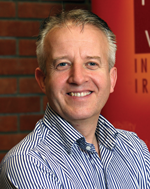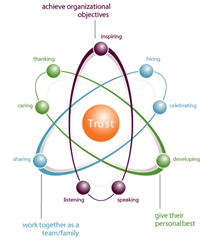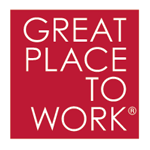Can the Public Sector be a Great Place to Work?
 CEO of Great Place to Work Ireland John Ryan believes that the Government and the Department of Public Expenditure and Reform need to re-affirm their commitment to Public Sector employees who may now feel they are viewed simply as a cost to be reduced rather than a significant asset to be appreciated.
CEO of Great Place to Work Ireland John Ryan believes that the Government and the Department of Public Expenditure and Reform need to re-affirm their commitment to Public Sector employees who may now feel they are viewed simply as a cost to be reduced rather than a significant asset to be appreciated.
To truly deliver a massive change programme within the Irish Public Sector, it is essential that the employees feel part of the process. After all, it is our Public Sector employees, the people at the heart of the current reform process, who will deliver this change.
With the Croke Park deal under pressure, debates on-going over pensions, and the Government continuing to stretch to reduce existing allowances, most people could be excused for believing that right now is not the best time to set out a vision for turning the Irish Public Sector into a great place to work. However, John Ryan, CEO of Ireland’s Great Place to Work Institute, argues that if Government wants to deliver the reform needed then there is no better time than now to focus on the people who can make it happen.
“Many people have a mistaken view as to what makes a great place to work. Often they focus on the environment, the benefits or the pay. However the truth is it’s all about trust, and primarily employees’ trust in management,” Ryan comments. “In poorly performing workplaces, employees feel like a number, and often feel they can be discarded at the whim of bosses. Because they feel they are treated like a commodity they respond in kind in a very transactional manner giving just enough effort to get by.
“However, great workplaces develop a partnership with their employees, they value them, they keep them informed, they invest in their training and development to build career plans, and they set clear expectations. Great workplaces give their people the tools and the support they need to succeed. They involve them in decisions, particularly around change, and set fair rewards. Under this culture, employees reciprocate by giving discretionary effort which is essential when you have less people doing more work.
“We passionately believe that any organisation can be a great place to work and fundamentally monetary rewards are not the key ingredient. From 25 years of research, trust is that key component. Yes, people must believe that they have fair pay but it’s the relationships you have in the workplace that really matter,” says Ryan.
According to Great Place to Work Ireland, every interaction you have with another person is an opportunity to either develop trust, damage trust or in the worst case destroy trust. The Institute, which is globally recognised, works with organisations of all sizes to define a great place to work as one where employees trust the people they work for, have great pride in what they do and enjoy the people they work with.
In the case of the Irish Public Sector, John Ryan says a new approach is needed to deal with lost working days. “Absenteeism levels in certain areas of the Public Sector are high but the question needs to be asked why? It is a mistaken belief that the introduction of a closely monitored performance management system will solve the issue. Organisations who take that approach to absenteeism find it is quickly replaced by presenteeism, where employees simply turn up for work but contribute little.
 “It is essential to look beyond the symptoms of absenteeism, and focus on the root cause. It is up to the leadership of the organisation to set a clear vision and inspire every employee to deliver their part in making this happen. Developing a strong team spirit plays a big part, because if this exists employees will not want to let their team down by not turning up. Engendering a deep sense of pride in what you are trying to achieve and deliver gets people out of bed in the morning, wanting to contribute all of their talents.”
“It is essential to look beyond the symptoms of absenteeism, and focus on the root cause. It is up to the leadership of the organisation to set a clear vision and inspire every employee to deliver their part in making this happen. Developing a strong team spirit plays a big part, because if this exists employees will not want to let their team down by not turning up. Engendering a deep sense of pride in what you are trying to achieve and deliver gets people out of bed in the morning, wanting to contribute all of their talents.”
Ryan says it has been proven the world over that any workplace can be a great workplace. Global organisations such as Microsoft and EMC as well as indigenous Irish companies like Barry Group or Topaz understand that if you want to achieve high performance you really need to value the people who will make that performance a reality.
Great Place to Work Ireland measures the level of trust in any organisation. There are many independent studies that have proven a clear correlation between the level of organisational trust and the level of organisational performance through productivity, collaboration, innovation and many customer service metrics. Organisations need to define the culture they want to create. Research shows they need to develop strong practices under nine areas to ensure that the culture is built into the DNA of the organisation.
According to John Ryan, the Irish Public Sector already has some shining lights. Children’s University Hospital Temple Street is a great example of an organisation in the public sector that has created a special culture and which has been recognised as a Great Place to Work. Speaking to RTE on the organisation’s achievement, Sr Julie Buckley, Head of Chaplaincy, explained: “We have less people, doing more work for less money, which is usually a recipe for disaster” but as Mona Baker, CEO of Temple Street Hospital, added: “It’s about respecting our staff. The organisation is just bricks and mortar but it’s the staff that work here on a daily basis that make it a great place to work.”
Tourism Ireland is another organisation that has achieved great place to work status. Chief Executive Niall Gibbons believes the three key ingredients to creating a great workplace are communication, appreciation and recognition, and developing pride in the organisation. He also recognises that the key challenge organisations face is the constant battle to maintain staff enthusiasm and motivation.
“It is essential to focus on creating an environment where all employees want to give their personal best,” John Ryan concludes. “The first step is to get a measure of the level of trust that currently exists. Then get a clear assessment of the practices that support your culture. And finally benchmark your organisation, both internally and externally, against the best. We believe that this can be achieved in the Irish Public Sector, which represents some of the very best working practices. It will only take a few more steps before Public Sector organisations in Ireland really can start their own journey to becoming Great Workplaces.”
|
Exceptional results When handled correctly public sector reform can deliver exceptional results. In the United States, the state of Georgia is a great example. They set a target of being Faster, Friendlier and Easier to deal with than any other state. They understood that they could only achieve this by collaborating with their employees and they achieved some impressive results; the time taken for certifying health care providers dropped from 1½ years to three months; processing adoption records dropped from four months to three weeks; filing student financial aid applications dropped from 15 weeks to four weeks; licensing motor vehicles dropped from six weeks to six days; and waiting time to be served for a driver’s licence dropped from two hours to eight minutes. As Georgia State Commissioner Joe Doyle says: “It’s about aligned leadership, ownership and involvement and a standard measurement methodology. We understood that the key to higher customer service was employees with high trust and job satisfaction. Employees who like their jobs are more likely to satisfy customers.” |
For more information: www.greatplacetowork.ie






